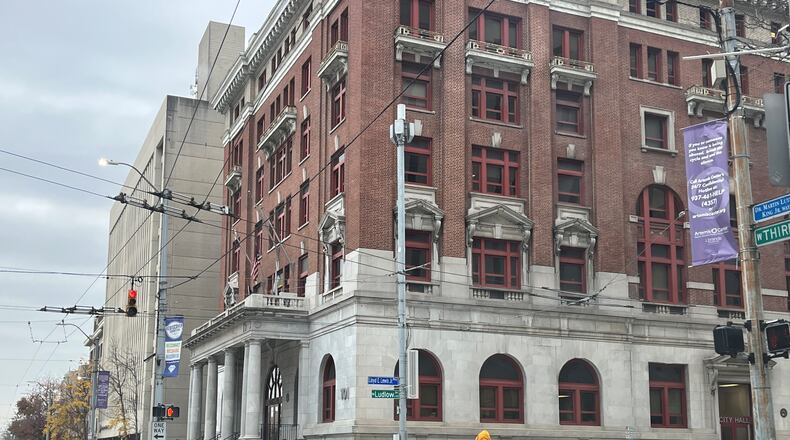“If revenues outperform expenses and revenue replacement dollars aren’t needed to fund a deficit in this year’s budget, staff could make recommendations similar to last year to fund strategic investments,” said Monica Jones, Dayton’s director of procurement, management and budget.
In anticipation of sizable revenue losses, Dayton officials decided to designate about $33.1 million of its $138 million in COVID relief funds to plugging projected budget holes through 2024.
Dayton officials for more than two and a half years have predicted that the city could see a big decline in general fund revenue because of a pandemic-related shift to remote work. People who used to work in the city now work from their homes in other communities some or all of the time. Workers owe income taxes where they work.
The city said COVID relief funds would help maintain city services through 2024. The funding comes from the American Rescue Plan Act (ARPA).
Dayton’s original 2022 budget called for using more than $11 million in federal funds to replace lost revenues, stemming from the pandemic.
But income taxes far exceeded projections last year, and that allowed the city to put $11.3 million of its revenue replacement money toward strategic investments, said Abbie Patel-Jones, senior management analyst with the city of Dayton.
According to budget officials, the city put $6.2 million toward catalyzing future development; $2.4 million toward additional residential road resurfacing work; $1.4 million toward cash matches for future infrastructure projects and the rest went to capital project contingencies and a judgment trust fund.
This was a sizable amount of leftover funding. To put it into perspective, the city plans to spend about $12.8 million of its ARPA money on demolition.
Dayton budget officials say the city expects to use about $4 million of its ARPA funds this year on revenue replacement.
“We hope that we don’t have to utilize the $4 million, but as we sit today that’s the plan,” Patel-Jones said.
The city’s income tax collections were down about 0.8% in the first quarter of this year, compared to the same period in 2022, and expenditures were up.
City officials continue to closely monitor the amount of refunds being issued to people who work from home. Refunds doubled last year, to nearly $4 million.
Refunds increased about 18% in the first quarter of this year, but city officials said the increase wasn’t a big hit to net revenue collections.
It’s too soon to know how much funding the city might need to cover an operating deficit by the end of the year, but city staff continue to monitor and evaluate the city’s finances, said Jones, the department director.
“At this time we don’t anticipate there being any unspent ARPA funds; many of the projects in the Dayton Recovery Plan are underway in the community with remaining project agreements coming before the city commission monthly, if not weekly,” Jones said.
About the Author

